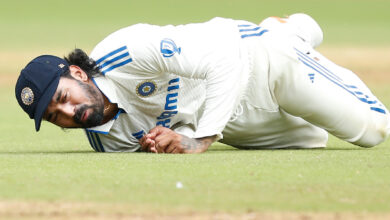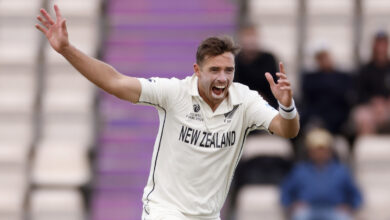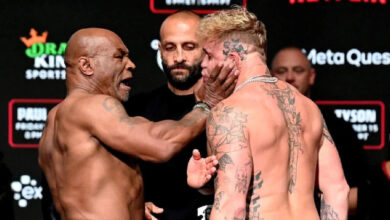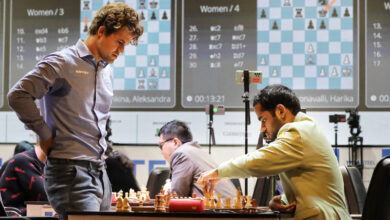How can the new coach Hafiz Hashim help PV Sindhu win gold at Paris Olympics

No coach carries a magic wand with him, and Muhammad Hafiz Hashim knows PV Sindhu’s fortunes won’t change overnight, merely with his arrival. Fallen out of the Top 16 bracket, Sindhu faces an uphill task to regain days of glory that date back to 2019 – four years ago, when she was crowned World Champion. She spent 377 weeks in Top Ten before dropping off in April earlier this year. Yet there was a whiff of optimism as Sindhu who turned 28 earlier this month, announced the new appointment who in turn did not shy away from ambition.
Declaring that the Paris Olympics gold was their ultimate goal, Hafiz seemed to take the pressure of immediate short-term results off Sindhu, even as he infused confidence in her saying he trusted her abilities to come good. The loss in Korea in Round 1 would’ve immediately alerted Hafiz to the amount of work needed to prop up what has been a stellar career, but looks in free fall in comparison to her heyday on days like the midweek when she lost to Pai Yu Po.
It was soon after the Commonwealth Games that Sindhu had felt the need for a coaching change, though it wasn’t until almost a year later that she could resume working with an international coach post Park Tae Sang. Hafiz comes with great credentials as a player – he won the All England in 2003 – though his coaching calibre will be judged depending on how Sindhu’s Olympic qualification period goes. “We want her to be Top 8, Top 4 before the Olympics,” says Pradeep Raju, head of the Suchitra Academy which brought Hafiz to Hyderabad after his contract with the Malaysians ended in December 2022. “He brings with him the Championship mentality, for he’s played and won at that top level,” he adds.
Hafiz won the All England at age 21, was coached the Sidek brothers, and has regered wins against Chen Hong, Lee Chong Wei, Lin Dan, Peter Gade and Taufik Hidayat in his day. Pradeep Raju attests to his professionalism: up at 5.45 am for a 6 to 9 am session, he has been travelling twice a week to Gachibowli where Sindhu trains. Hafiz would take a long flight from Hyderabad to Seoul and head straight to the court for practice this last week in Korea.
He brings in positivity, constantly emphasizing stats that highlight her winninger record against most players, save for some. He has been stressing that she’s capable of beating anyone in a draw, and that they are out there to beat everyone, without being deterred names. But pulling off those wins is easier said than done.
How can Hafiz help Sindhu?
Sindhu is desperately searching for consency against both the top names and mid-rung ones. Hafiz has assured her she will be able to play the fast, attacking, aggressive game soon, one that brought her success. But one that is wedded to shuttle control and minimizing errors.
Perhaps the duo could start with how she responds to unfavourable line calls – a bunch of which upset her at the US Open where she lost to Gao Fang Jie, a week after comfortably beating her at Canada. Sindhu needs someone who can calm her down when the stormy line call erupts, so she can focus on the next point and not get ambushed the emotions of the moment.
Another area of improvement for Hafiz is when Sindhu allows opponents to dictate the pace of the game – getting lulled into slowing down. Hafiz will need to shepherd her through rallies, mixing caution with aggression, and altering the slow and fast pace within a rally, where she has been getting caught often.
But one of the key points Sindhu herself mentioned in the post welcoming the new coach was his own towering stature. At 6’2″, Hafiz is equipped to guide Sindhu through the tall athlete’s conundrum: great reach over the high shots, but struggle on the low retrieves, where she is way below her comfort zone, needing a low centre of gravity. It is rumoured that the very tall Viktor Axelsen sought out Hafiz in his early years to learn about how to cope with low defense, and Sindhu could well benefit from that same advice. Sindhu has used her height and power to hit hard all these years, Hafiz could help her work the angles using her long limbs and towering frame.
Another aspect that Hafiz has been drilling in is that at that level Sindhu will need to show the courage to take half chances – sometimes the only ones offered the other top players. Reset if you don’t succeed, but go for the half chances is his constant refrain.
While she has been moving well and shot selection might seem the only thing needing tweaking, at 28, with slowing reflexes, the biggest challenge for Sindhu is bound to be physical. While the injury doesn’t seem to have dented her confidence in her attacking play, both against Yamaguchi and Gao as well as Po, highlighted her struggles to finish the points where opponents merely up the ante and draw out defensive errors. Not prolonging matches unnecessarily is something Hafiz spoke of, but like most improvements, it is easier said than done.
Sindhu is a fair few paces off the top rung currently, and what she needs is an injection of confidence that she can once again be amongst the best, and go for a hattrick of Olympic medals, never been done before. But it’s more than minor tweaks that might be needed to effect a turnaround. Hafiz wielded his racquet elegantly like a wand, but the magic might well be in stringing together hard fought wins. If nothing else, Hafiz could help Sindhu riff off his inspiration at next year’s All England, the only one missing sorely from the cabinet.







